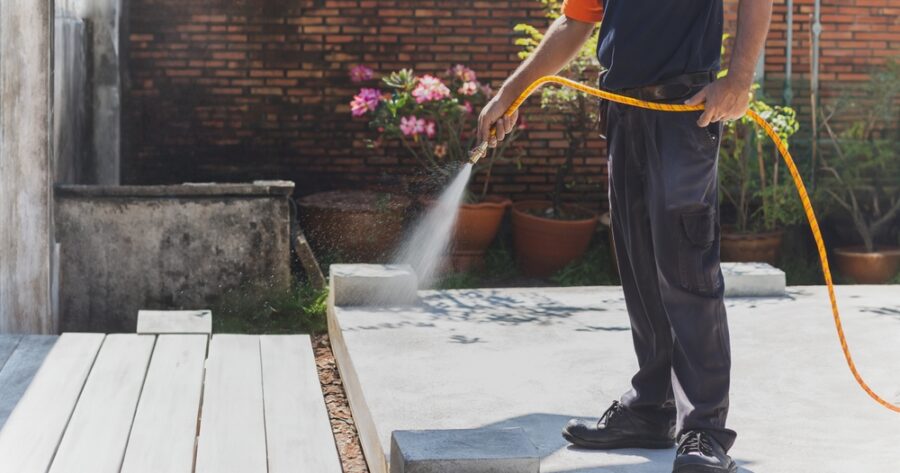Pests in your home can be more than just an annoyance—they can damage property, spread disease, and create an uncomfortable living environment. To maintain a clean and safe home, it’s important to take preventative measures to keep pests out. By adopting a proactive approach and following a regular maintenance routine, you can effectively reduce the risk of infestations and protect your home from potential pest-related issues. Keeping your living spaces pest-free ensures the health and well-being of your household and preserves the integrity of your property.
1. Seal Entry Points
The first line of defense against pests is making sure they can’t get inside your home.
- Inspect Your Home: Check for cracks and gaps in windows, doors, walls, and the foundation. Pay special attention to areas around pipes and utility lines.
- Seal Cracks and Gaps: Use caulk or weather stripping to seal small gaps and cracks. For larger openings, use expandable foam or steel wool to fill in spaces.
- Install Door Sweeps: Place door sweeps on exterior doors to prevent insects and rodents from entering through the bottom.
2. Keep Your Home Clean
A clean house is less attractive to pests, as it minimizes potential food sources.
- Wipe Down Surfaces: Regularly clean kitchen counters, dining areas, and other surfaces to remove crumbs and spills.
- Store Food Properly: Keep food in sealed containers and avoid leaving it out overnight. Don’t forget pet food, which can attract pests if left in open dishes.
- Take Out the Trash: Empty trash bins frequently, and make sure they have tight-fitting lids. Clean trash cans regularly to remove residue.
- Sweep and Vacuum Regularly: Routine vacuuming and sweeping help eliminate small crumbs and debris that attract pests.
3. Manage Moisture Levels
Pests such as cockroaches, termites, and ants are drawn to moisture.
- Fix Leaks: Check for leaking pipes, faucets, and roof issues. Repair any leaks promptly to avoid excess moisture buildup.
- Use a Dehumidifier: If your home has high humidity levels, especially in basements and bathrooms, consider using a dehumidifier.
- Proper Ventilation: Ensure that your home is well-ventilated, particularly in moisture-prone areas like the kitchen and bathroom.
4. Maintain Your Yard
The state of your yard can influence the presence of pests inside your home.
- Trim Plants and Shrubs: Keep plants and shrubs trimmed and away from the exterior walls of your home to prevent pests from using them as a bridge.
- Remove Standing Water: Eliminate sources of standing water, such as birdbaths, clogged gutters, and planters. These can attract mosquitoes and other pests.
- Store Firewood Properly: Keep firewood at least 20 feet away from your home and off the ground to discourage termites and other insects.
5. Use Natural Deterrents
There are several natural ways to repel pests without using harsh chemicals.
- Essential Oils: Certain essential oils, such as peppermint, lavender, and tea tree oil, can repel insects. Mix a few drops with water in a spray bottle and apply around windows, doors, and other entry points.
- Citrus Peels: Placing citrus peels around areas prone to ants can help keep them at bay.
- Vinegar Solution: A mixture of equal parts water and white vinegar can be used to clean surfaces and deter ants and other pests.
6. Regular Inspections and Professional Help
Routine inspections can help identify potential pest problems before they become significant.
- Inspect Regularly: Make it a habit to inspect areas of your home that are more susceptible to pests, such as the attic, basement, and garage.
- Set Traps: Place traps for common pests such as mice and insects in strategic areas. Monitor and replace them as needed.
- Call a Professional: If you find yourself dealing with a persistent pest problem, don’t hesitate to contact a pest control professional. They can assess the situation and provide targeted treatments that are safe for your household.
Keep Your Home Pest Free
Keeping pests out of your home requires a proactive approach and consistent effort. By sealing entry points, maintaining cleanliness, managing moisture, and using natural deterrents, you can create an environment that is less appealing to pests. Regular inspections and prompt attention to potential issues will further ensure your home remains a safe and comfortable place for you and your family.
